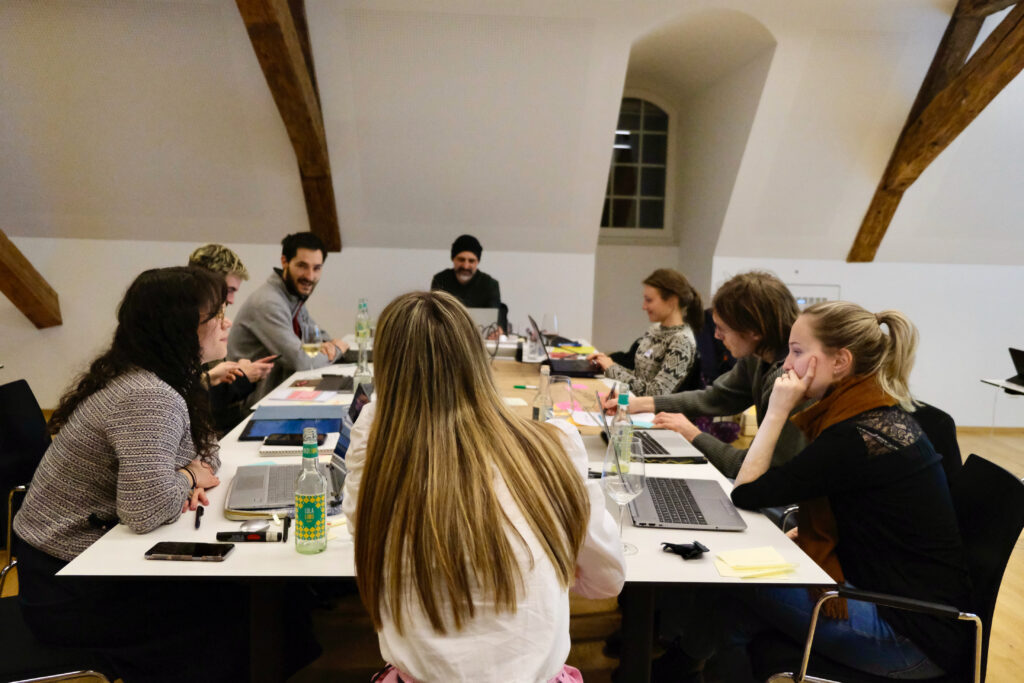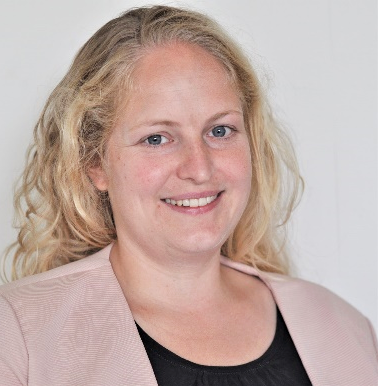This blog article on education and knowledge is part of a four-part blog series created with masters students receiving a Hirschmann foundation scholarship. The goal for the multidisciplinary group of future decision-makers was to develop visions on where sharing economy approaches could be implemented to improve our society as a whole
Authors: Deborah Beer, Timo Paris, Valentina Elisia Zarra, Giulia Zumstein, Regula Bähler, Jan Kreuzer, Michael Weiss and Larissa Platz
Cover Image: Linn Nora Henz (2023)
Bringing together 27 young thinkers from a variety of academic fields, we used Policy Kitchen to dive into sharing economy approaches. The result is a four-part blog series on areas of life where we can share more today, to leave behind a world worth living for the generation of our grandchildren. This project is made possible by the Hirschmann foundation.
Education is an essential pillar of any society. Sharing economy approaches bear the potential for bold advancements in many areas of life, education, knowledge management and science being amongst them. In today’s world, robust and high-speed internet access is essential for the education of children and adults alike. The digital era has given rise to innovative forms of education: online courses, virtual classrooms and digital libraries have already redefined how we acquire knowledge. Open educational resources (OERs) continue to play a pivotal role in this ecosystem, promoting collaboration and resource sharing among educators.
Broadening the access to knowledge and the way we address the digital divide between different parts of the world population will play a fundamental role in contributing to a fairer future. 250 million children worldwide still have no access to education. To “ensure inclusive and equitable quality education”, as expressed in the United Nations’ 2030 Agenda for Sustainable Development, globally accessible solutions need to be established. One form to improve upon the current status quo could be a godparent system, on a one-to-one basis, or other community support measures and networks for learners. If every person with access to education supports someone without, global barriers to education could be reduced. Such support can go beyond educational resource sharing and mentorship as it might also encompass financial assistance. By voluntarily contributing slightly higher tuition fees, financially privileged students could help those with disadvantaged backgrounds gain access to education. This mutual exchange fosters personal connections, encouraging increased generosity, participation, and the sharing of intercultural knowledge.
A (digital) update for our school systems
Education plays a vital role in preparing young people for uncertain and challenging futures. Keeping up with technological innovation presents significant opportunities and associated challenges. The extensive use of AI in producing new sources and information in the blink of an eye requires users to evaluate content ever more cautiously. This change requires us to develop new knowledge, such as an understanding of how algorithms process information, of the potential biases encoded in their outputs or skills in scrutinising and fact-checking everything we see, hear and read. However, as AI technology develops further and gives us new possibilities to quickly gain overviews over complex scientific thematics or historical facts curricula will also adapt, allowing for more time invested in essential skills AI cannot replace.
The focus of what should be part of general education shifts towards promoting contextual knowledge and empowering students to apply their learning effectively in real-world situations – leading to a more interconnected global society, in the spirit of the sharing economy vision. In consequence, this transformation may also lead to a reshaping of student assessment, moving away from traditional standardised tests to evaluating students’ holistic thinking.
Beyond formulas and key dates: alternative forms of knowledge
By embracing alternative forms of knowledge, such as learning about our physical and emotional well-being, daily life-skills and ethical conduct, education gains depth and relevance. Learners will be equipped to address urgent global challenges with not only scientific knowledge but also ethical understanding, recognizing their role as global citizens. Personal development programs empower students with skills such as resilience, emotional intelligence and embodied knowledge preparing them for the complexities of life.
For example, recognizing the influence of nutrition on physical and mental health as well as its correlation with climate change and food security, nutrition education could figure more prominently in curricula. Furthermore, the importance of cultivating embodied knowledge could be explored. Visual experiences, reinforced by digitalisation, lead us to transition into the analytical and rational and push us away from embodied, sensual experience. In consequence, today’s technological world causes us to experience alienation and loneliness. As a basis for universal human perception, physical experiences offer opportunities to communicate across the boundaries of education and socialisation. This holistic approach also emphasises the importance of nurturing interpersonal skills, including teamwork, communication, and empathy.
A brief outlook over the next five years
Focusing on the future, it is imperative to focus on equitable access to knowledge, innovative teaching methods, and collaborative efforts among educators, policymakers, and communities. By doing so, we can shape an educational landscape where every learner, regardless of their background, can thrive. In conclusion, the future of education is poised for transformation, with visionary concepts, more varied curricula and the integration of learning support systems spanning continents.
We thank the Hirschmann foundation for their kind support of this four-part blog series on sharing economies.







